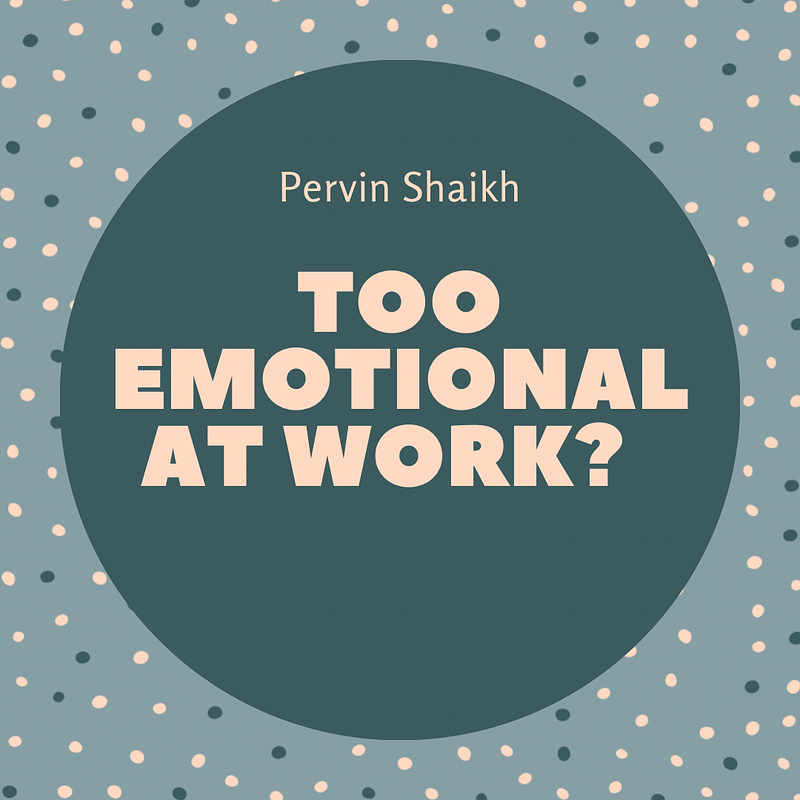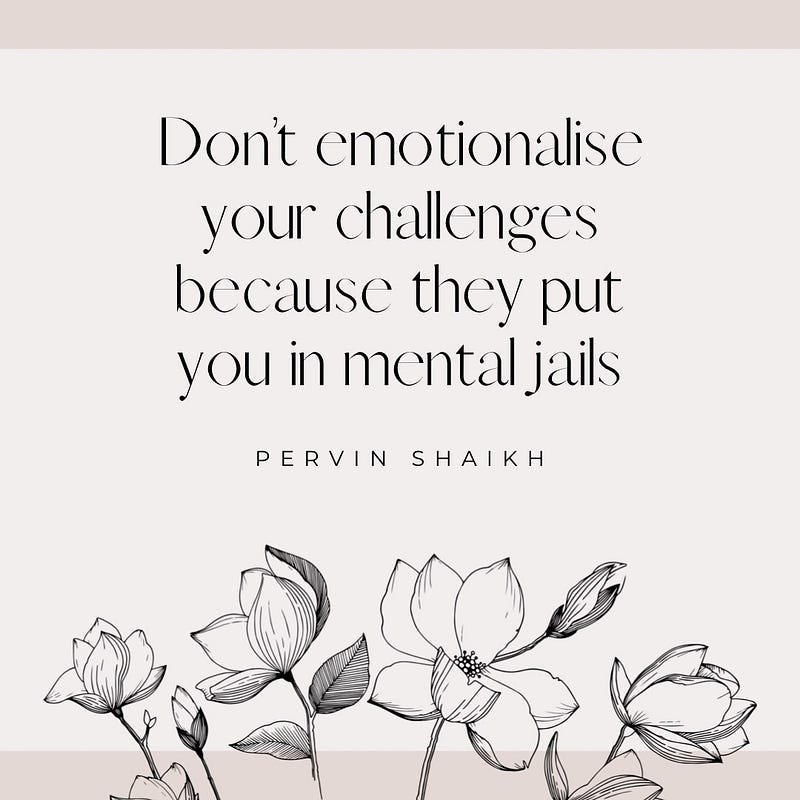Mastering Emotional Management in the Workplace: Essential Tips
Written on
Chapter 1: Understanding Emotions at Work
In today’s fast-moving and often high-pressure work environment, it’s common to experience a range of emotions. Factors such as unexpected challenges, difficult colleagues, or demanding supervisors can all contribute to heightened feelings. Therefore, mastering emotional management is vital for maintaining professionalism and safeguarding your mental health.
Recognizing that it’s impossible to completely eliminate emotions is the first step. Emotions are an inherent aspect of human nature, often stemming from our commitment to our work and our aspirations for success. Instead of attempting to suppress or ignore these feelings, prioritize managing them in a healthy and constructive way.

Chapter 2: Strategies for Managing Your Emotions
One effective approach to managing emotions in the workplace is to tackle difficult situations with a problem-solving attitude. Rather than merely focusing on issues, take the time to explore potential solutions as well.
This shift in mindset can turn a potentially emotional and unproductive interaction into a proactive discussion. For example, if a challenging project leaves you feeling overwhelmed, pause to assess the situation critically. Break the task down into smaller, more achievable components, and consider reaching out to colleagues who might have navigated similar hurdles. Viewing the scenario as a growth opportunity can lessen emotional strain and enhance your capacity to manage the task effectively.
In the video "Effective Ways to Manage Your Emotions at Work," discover practical techniques to enhance emotional regulation and foster a more productive work environment.
Developing emotional intelligence and self-awareness is another crucial technique for managing workplace emotions. Spend time identifying your emotional triggers and behavioral patterns. Recognizing these patterns enables you to become more attuned to your emotions as they occur, allowing for more controlled responses.

Chapter 3: The Importance of Self-Care
Engaging in self-care practices is essential for emotional management within the workplace. Activities outside of work—such as exercising, meditating, or pursuing hobbies—help you unwind and recharge. By prioritizing your physical and mental health, you’ll be more equipped to handle stressful circumstances without becoming overwhelmed by your emotions.
Building a supportive network at work also provides a valuable avenue for discussing emotions and seeking guidance. Develop relationships with trusted colleagues who can offer a sympathetic ear or a fresh perspective on challenging issues. Sometimes, articulating your feelings with someone who understands can lead to clarity and potential solutions.
In the video "Control Emotions At Work - How to Regulate Your Emotions," learn strategies for emotional regulation that can enhance your workplace interactions.
Chapter 4: Appropriately Expressing Emotions
It's important to acknowledge that expressing emotions in the workplace is perfectly acceptable. Complete emotional detachment is unrealistic in a professional setting. However, expressing emotions in a constructive and respectful manner is crucial. Choose suitable times and venues to communicate your feelings, such as in one-on-one meetings or team discussions, ensuring that your emotions are articulated clearly and tactfully.
Parting Thoughts
Experiencing emotions at work is entirely normal, but effectively managing them is crucial for maintaining professionalism and well-being. While eliminating emotions isn’t feasible, improving your management skills is achievable.
By adopting a problem-solving mindset, enhancing self-awareness and emotional intelligence, prioritizing self-care, creating a support network, and expressing emotions appropriately, you can navigate the complexities of the workplace with greater resilience and success.
Remember, it’s not about eradicating emotions but about managing them effectively to benefit both you and your career.
Thank you for your attention. Follow me for more insightful tips.
Pervin
linktr.ee/AimHighLtd